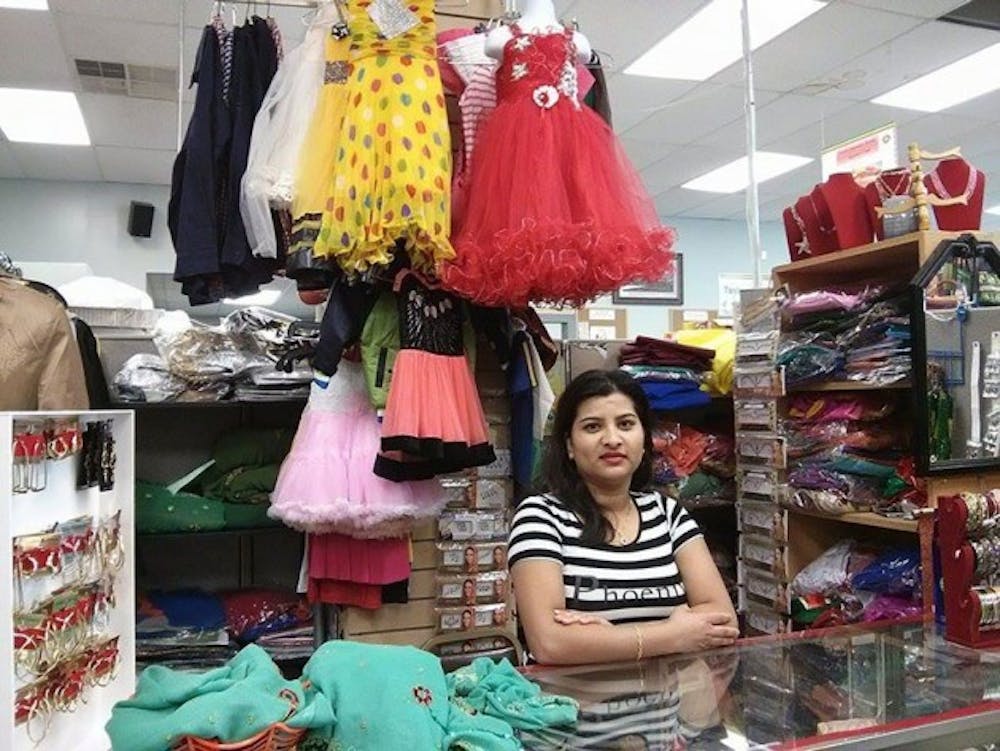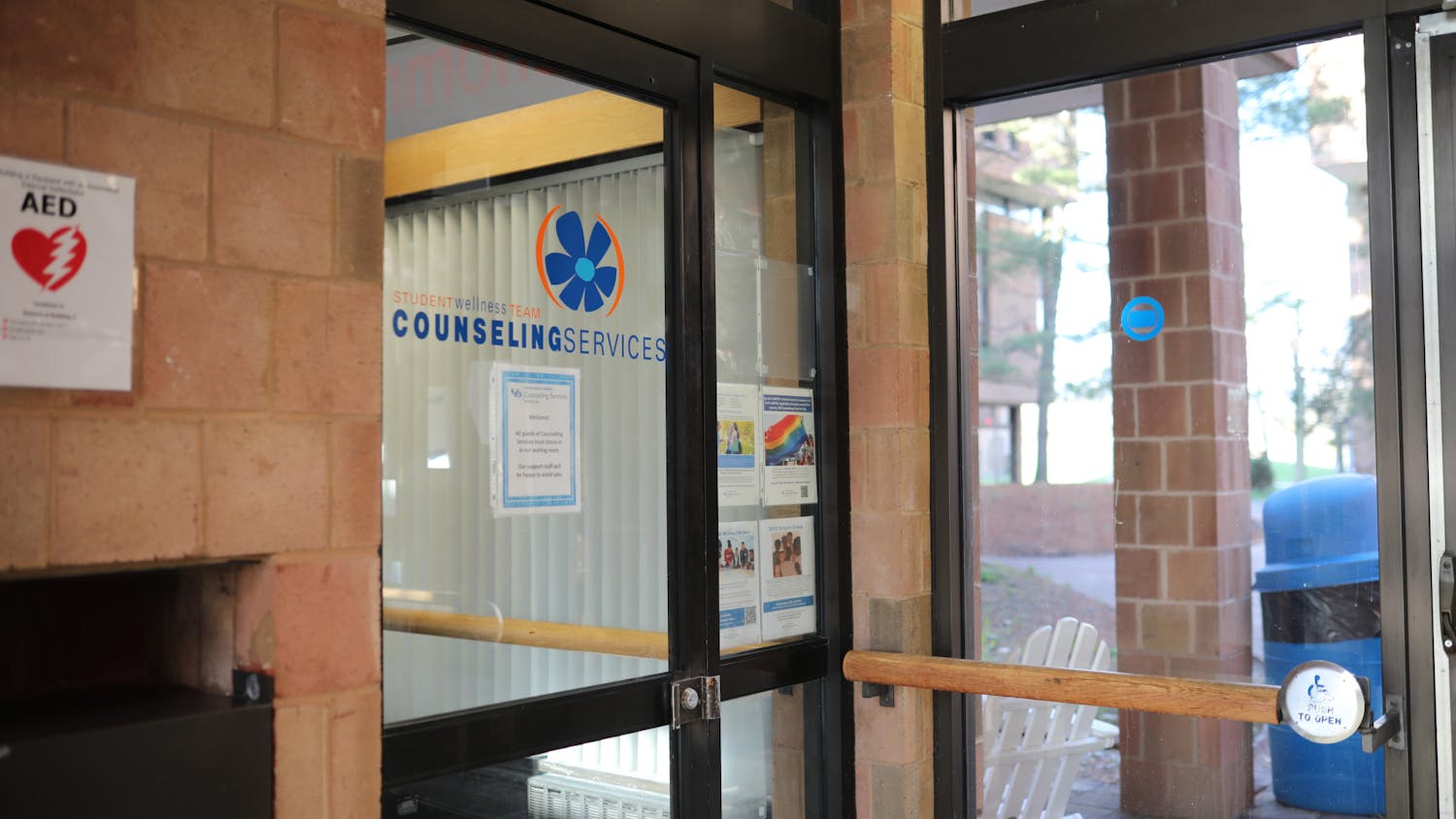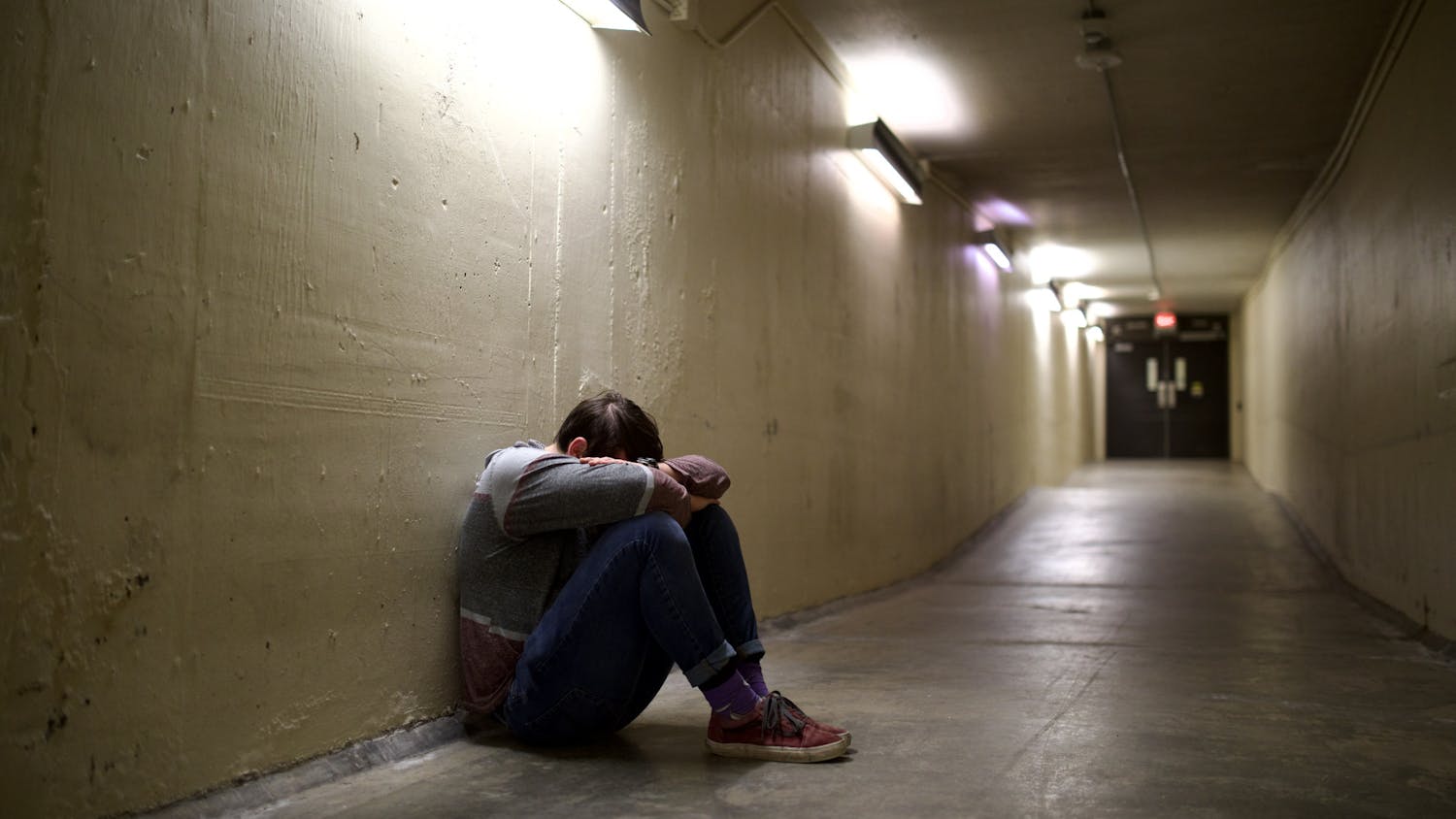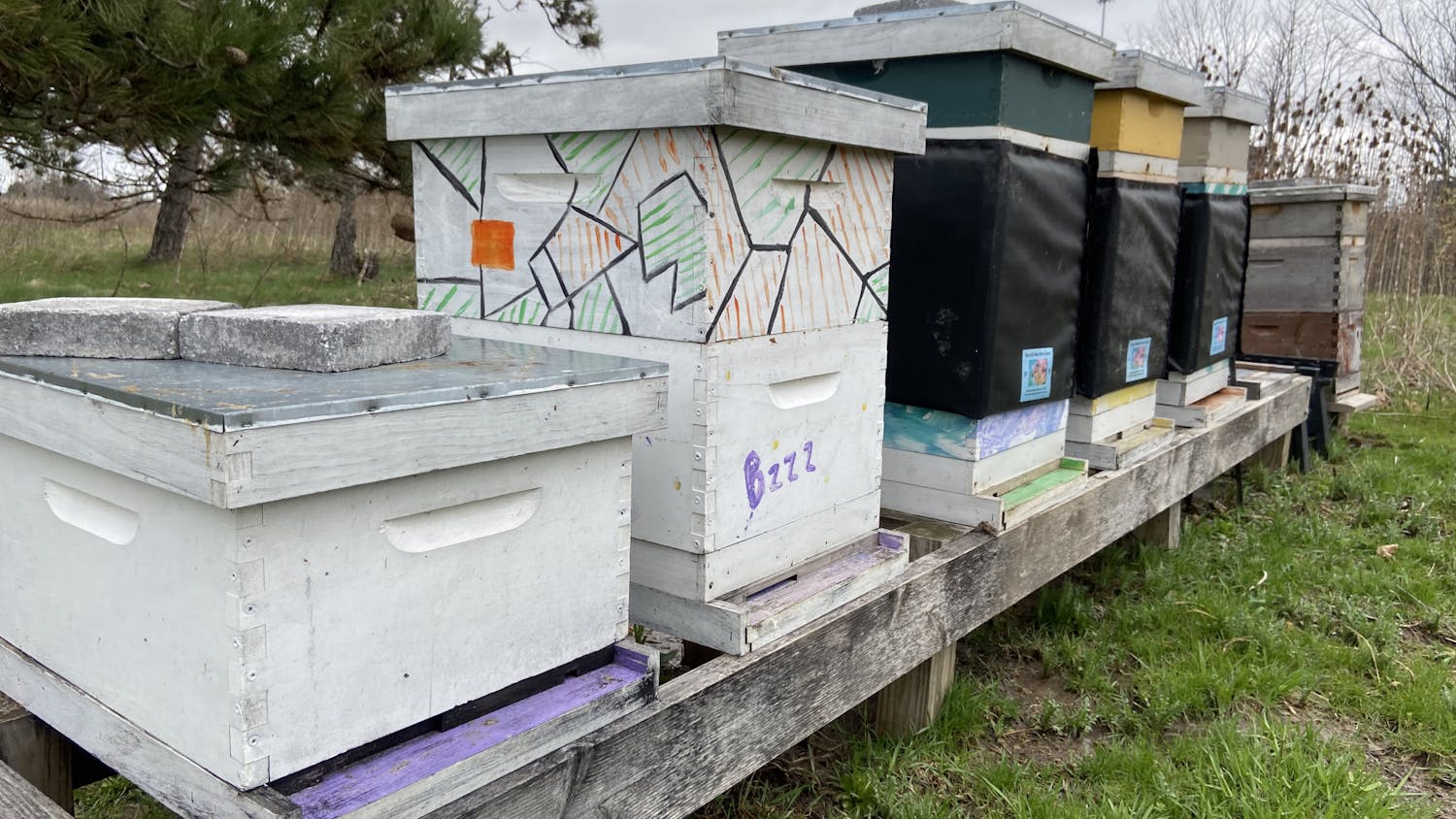Bhagawat Pyakurel, Bhutanese-born Nepali refugee, shares one car and one phone with his wife. He regularly pulls nearly 13-hour days between working, classes and driving himself and his wife to and from work.
The 30-year-old sophomore math major owns Nepali Clothing and Cosmetics – not only a small business, but a connection to his native country and means to survive in America.
He refuses to ask his parents for any money. They, too, are recent refugees.
“I’m tired, but what to do?” he said. “It is not that [my parents] are not willing to [help me] but they are also new to America. Everyone here are like small kids, and every one of us are growing.”
Pyakurel, and many others new to America, are using the West Side Bazaar – where his business is housed – as their place to grow.
“It is not only a place to do business, but a place to share culture across the world,” Pyakurel said.
The Westminster Economic Development Initiative (WEDI) founded the West Side Bazaar in March 2011 to revitalize Buffalo’s West Side and provide immigrants and refugees the opportunity to establish a small business and connect with the broader Buffalo community. Currently, 14 vendors from seven countries operate small businesses at the Bazaar. For many, the bazaar is a salvation – a place to make money, learn business skills and ease into life in a new country.
Pyakurel attends class at UB every day and runs Nepali Clothing and Cosmetics on Tuesdays, Thursdays and Saturdays. His wife, Madhavi Pyakurel, works at the Bazaar and the Eastern Hills Mall.
Every Tuesday, he drops his wife off to work at 9 a.m. and attends class at UB from 9:30 a.m. to 10:50 a.m. After working at the Bazaar from 11 a.m. to 6:00 p.m., he drives back to UB and attends class from 6:30 p.m. to 8:50 p.m. He picks up his wife from the mall at 9:00 p.m. and returns home at 9:45 p.m.
A new home, a tough start
One thousand four hundred refugees resettled to Buffalo in 2011, according to the International Institute’s website. Burmese refugees are the largest refugee population in Buffalo – accounting for 7,000-8,000 of Buffalo’s refugees.
Refugees who have limited English skills have difficulty finding jobs in the United States, according to Michelle Holler, coordinator of West Side Bazaar.
“They come here and they’re dishwashers,” Holler said. “The jobs we don’t want to do – that’s what they [end up] doing.”
Pyakurel arrived in America in 2008, first living in Syracuse, New York. It took seven months and more then 20 applications for him to land a job at a gas station. He relied on government assistance to get by.
“Any place I know, I apply for a job,” he said. “I went to the mall every single day, and I filled up the form in every single store.”
Potential employers often asked him, “Do you have any experience in America?” When he answered “No” his prospects for being offered the position plummeted, he said.
Pyakurel said he initially struggled in the United States because of the communication and cultural gap.
“Even though I’m speaking English, my English does not sound like I’m speaking English to them,” he said. “American people were in this way and our people were in other way.”
In 2010 he started college at Onondaga Community College. To make a living and work 40 hours a week, he’d do early shifts before classes and 4 a.m. to 4 p.m. shifts Friday through Sunday for nearly three years as a cart parts inspector.
But in Buffalo – where he moved after completing his associates degree – Pyakurel was able to open his own business after five months at UB.
Gysma Kueny, a refugee from South Sudan, worked at a local food factory in Buffalo before opening Gysma’s African Style at the West Side Bazaar. When Kueny was a factory worker, she typically worked 12 hours a day and did two times the amount of work of a single person, Holler said.
Pyakurel and others enjoy the flexibility that comes with working at the Bazaar.
It’s an “easy business [that] does not cause a lot of headache,” Pyakure said. He now has a community of other vendors he can rely on. He said they’re always willing to help each other out.
A piece of home
For many vendors, loss is a shared experience.
“Their stories are not completely the same, [but] they’re similar,” Holler said. “They’ve all lost family, friends, their community [and] their comfort zone.”
Working in the West Side Bazaar allows them to reclaim their comfort zone and create a “piece of home,” Holler said. She said she often sees Pyakurel and his wife bargaining with their Nepali customers the way they bargained in Nepal.
“It’s fun to watch them interact and be able to use their own language,” Holler said. “They act like they’re in their own country.”
Aysegul Balta Ozgel, a UB Ph.D. sociology student, said these interactions are characteristic of ethnic enclaves, physical spaces with high concentrations of a particular ethnic group. Balta Ozgel, who has researched the Bazaar for her coursework at UB, found the interactions vendors had with their own community contributed to their satisfaction at work.
Behind the business
Pyakurel said running a business at the Bazaar is relatively inexpensive. WEDI subsidizes the rent for each business in the Bazaar. Food vendors pay $450 per month and retail vendors pay $200 per month – half the price of what the rent actually costs, according to Holler.
Pyakurel enjoys exchanging stories with other vendors and customers.
“I can at least make clear about who I am,” he said. “Most people don’t know Bhutan is part of this world.”
Holler, a well-traveled American who has been throughout Europe, Africa and Southeast Asia, has been the manager of the Bazaar for 10 months. She said working with people from different cultures is rewarding and challenging.
When 14 owners who speak several different languages and follow four different religions share 3,127 square feet of space, minor disagreements are inevitable, she said. The most common disagreements occur over what the Bazaar’s hours should be and the maintenance of the kitchen, she said.
Typically, the Bazaar has 50 customers per day, Holler said.
“At about 6, I become the only American in here,” she said. “It’s a meeting place as much as a market.”
But language is not a problem for Holler. She feels more comfortable around people who don’t speak English.
“I don’t feel obligated to make conversation. Even if there’s a language barrier, sometimes it’s better to be silent,” she said.
A place to learn
In her research, Balta Ozgel found that working at the Bazaar was not only an opportunity for vendors to socialize with their community, but also an opportunity to pursue self-development and improve their English and entrepreneurial skills. Currently, each vendor is required to attend a monthly meeting to learn business skills. In 2015, the Bazaar plans to hire a small business coach for every vendor, Holler said.
Doing research at the Bazaar motivated Balta Ozgel to volunteer in the immigrant community.
“I think I have two hats,” she said. “One as a researcher [and] one as a person. You build your career on their information, but how do you pay them back? That’s why I started volunteering for an after-school program for immigrant children.”
Holler hopes to spread the Bazaar’s story and mission to people across Buffalo’s suburbs. “Once [they] know the story behind it, they want to come here,” she said.
The West Side Bazaar is open Tuesday through Thursday from 11 a.m. to 7 p.m. and Friday through Saturday from 11 a.m. to 8 p.m. It is located at 25 Grant St. and is about a 20-minute drive from North Campus. Students can also reach the Bazaar by taking the NFTA Metro-Rail from University Station on South Campus.
e-mail: features@ubspectrum.com





